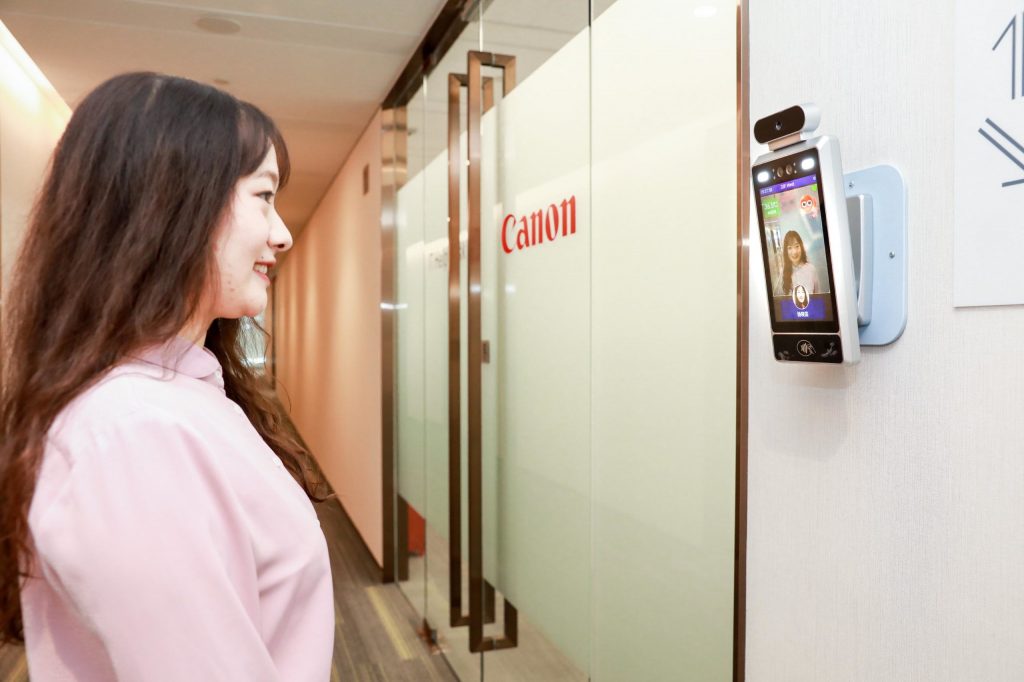Picture this: You’ve had a terrible week and just want to go home. But before you can, you have to hit a staff meeting where smiling is mandatory. Sounds awful? That’s what we thought. But that’s more or less what the staff at Canon Information Technology in China have to deal with.
The camera company’s Chinese subsidiary has installed biometric access cameras, powered, by AI, that require that workers smile before they proceed. The company makes the devices themselves, likely an offshoot of its commercial camera products, and they probably think making their staff smile to get into the building is a good idea.
Yes, this is actually Canon
And, from a certain point of view, we can see where they’re coming from. After all, happy staff are productive staff but this… isn’t how you get happy staff. It’s one thing to have a smile-activated camera shutter, but a smile activated boardroom door sounds like a good way to create resentful staff.
King’s College London lecturer Nick Srnicek, speaking to the Financial Times, said, “Workers are not being replaced by algorithms and artificial intelligence. Instead, the management is being sort of augmented by these technologies” He continued, “Technologies are increasing the pace for people who work with machines instead of the other way around, just like what happened during the industrial revolution in the 18th century.” Basically, surveillance of staff is on the rise around the world, in all sorts of careers.
Canon is far from the only company doing this and it’s not just giants like Amazon that are putting pressure on their workers in this way. Microsoft’s Office 365 includes tools that offer a ‘productivity score’ — basically, it can measure all sorts of factors that would allow a boss to spy on your workday. Similarly, the current trend of working from home has prompted many companies to install idle-trackers (and has also prompted some workers to get creative, as this ‘written-mostly-for-the-SEO’ article shows).
Source: Financial Times




